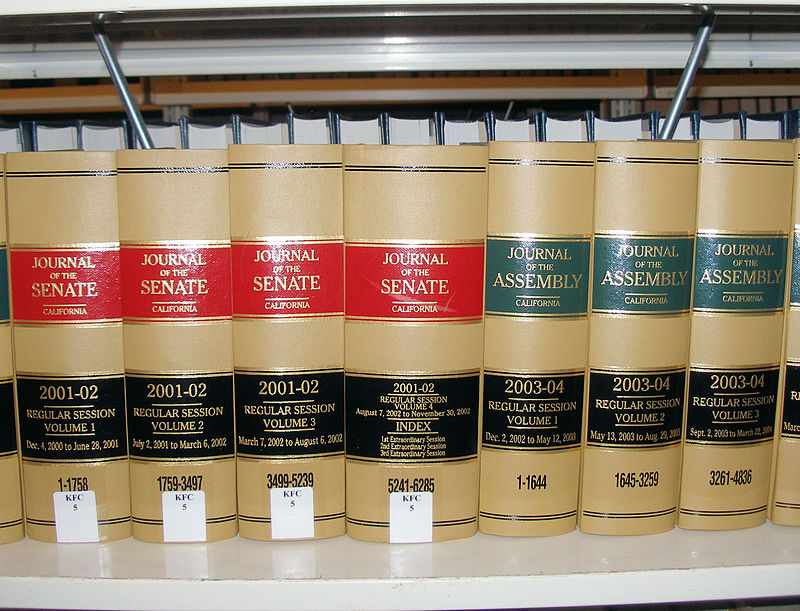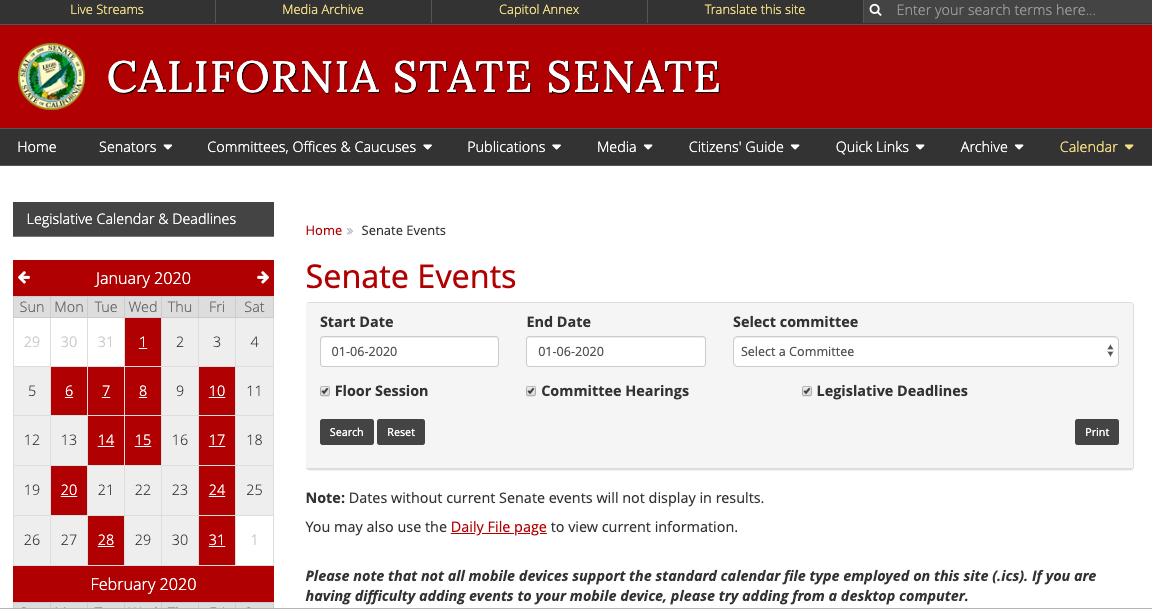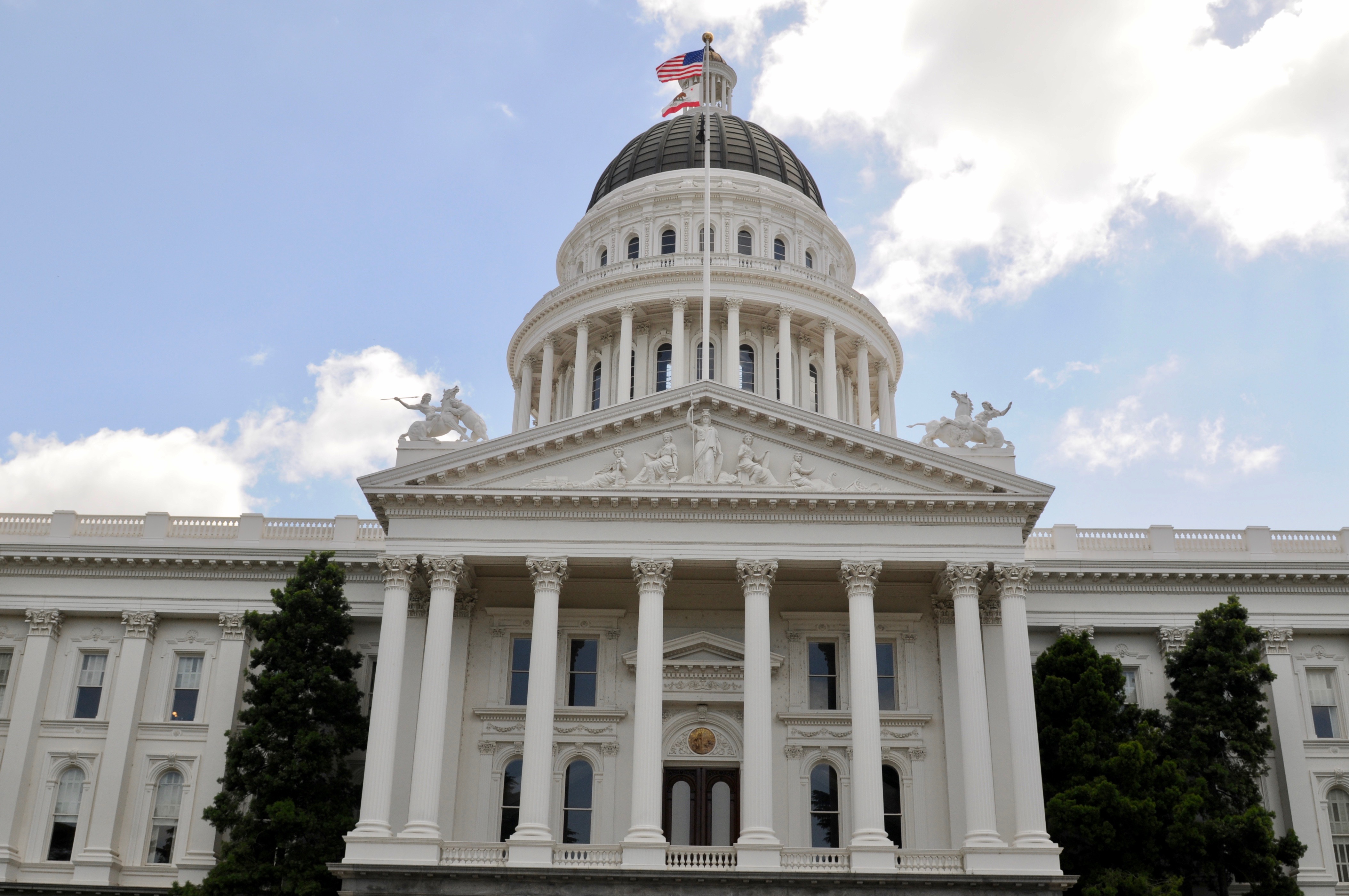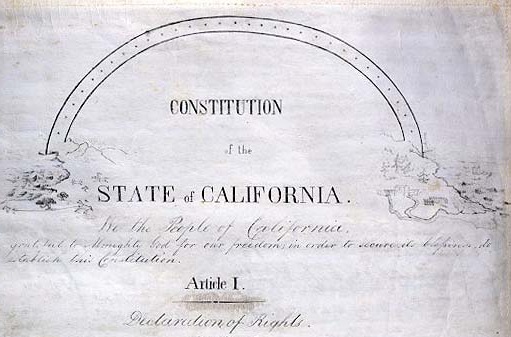
Journals of the California Legislature. (Photo: Wikipedia)
California Legislature’s Organizing Session
This provision is essentially a restatement of the constitutional provision
By Chris Micheli, March 2, 2020 2:39 am
The California Legislature operates during two-year legislative sessions. At the commencement of the 2-year Session, the Legislature must organize itself. In that regard, there are several provisions related to organizing the Legislature that are found in the California Constitution and the Government Code.
Constitutional Provision
According to Article 4, Section 3(a) of the state constitution, “The Legislature shall convene in regular session at noon on the first Monday in December of each even-numbered year and each house shall immediately organize.” This date falls every two years about three weeks after the statewide general elections has taken place. The two houses convene that first session at noon and it usually lasts about two hours.
Government Code Provisions
Pursuant to Section 9020 of the Government Code, “The Legislature shall convene in regular session at the City of Sacramento at noon on the first Monday in December of each even-numbered year, and each house shall immediately organize.” This provision is essentially a restatement of the constitutional provision.
According to Section 9021, “The certificate of election is prima facie evidence of the right to membership.” The California Secretary of State prepares this document certifying that the individual has been elected to either the Assembly or the Senate.
Per Section 9022, “At the day and hour appointed for the assembling of any regular session of the Legislature, the President of the Senate, or in case of his absence or inability, the senior member present, shall take the chair, call the members and members elect to order, and have the secretary call over the senatorial districts, in their order, from which members have been elected at the preceding election. As the districts are called the members elect shall present their certificates, take the constitutional oath of office, and assume their seats. If a quorum is present, the Senate may then elect its officers.”
This provision has several key components. Either the Lt. Governor or the most senior member of the Senate opens the session and the senators (both the 20 who were just elected, as well as the 20 carryover senators) respond to the calling of the Senate District in numeric order, from SD 1 through SD 40. Once the new senators take their seats, then they elect the officers of the Senate.
Under Section 9023, “At the day and hour appointed for the assembling of any regular session of the Legislature, the Chief Clerk of the Assembly, or in case of his absence or inability, the senior member elect present, shall take the chair, call the members elect to order, and call over the roll of counties in alphabetical order. As the counties are called the members elect shall present their certificates, take the constitutional oath of office, and assume their seats. If there is more than one senior member elect present and the senior members are unable to agree as to who shall call the session to order, the Attorney General or one of his deputies shall call the session to order. If a quorum is present, the Assembly shall then elect its officers, and there shall be no other business, motion or resolution considered before the election of the Speaker, save and except a motion to adjourn or a motion for a call of the house.”
This provision has several key components as well. Either the Assembly Chief Clerk or the most senior member of the Assembly opens the session and the Assembly Members all 80 of them) respond to the calling of the 58 counties. Once the new Assembly Members take their seats, then they elect the officers of the Assembly. The first order of business is to elect the Speaker of the Assembly.
Section 9024 provides “Members of the Legislature who did not take the oath of office at the assembling of the Legislature may take the oath at any time during the term for which they were elected.” This provision allows individuals elected to either house to take their oath of office at any time during their term, such as those elected during a special election to fill a vacancy.
Per Section 9025, “An entry of the oath taken by members of the Legislature shall be made on the journals of the proper house.” This provision requires the Assembly Daily Journal and the Senate Daily Journal to publish all the oaths of office by their respective members.
At the organizing sessions, both the elected officials and their families and supporters are in attendance. They rarely engage in regular business, other than introducing their first bills, which not all legislators do on that first day. They visit with colleagues, former legislators attend, and they enjoy the “pomp and circumstance” of the organizing session. Thereafter, in the first week of January, legislators commence the serious work ahead that will last the following two years.
- Corporations Commissioner Powers - February 27, 2026
- Death Deeds in California - February 27, 2026
- Sources of Law - February 26, 2026




